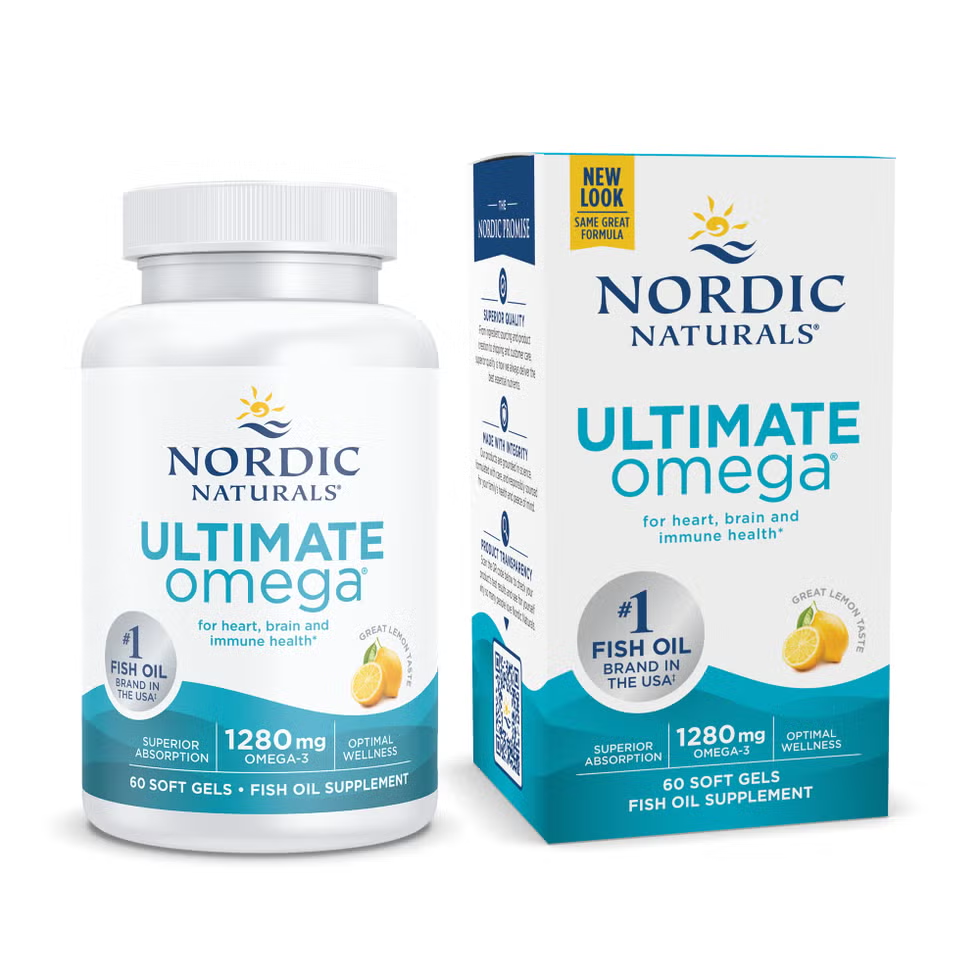Researchers just discovered yet another reason you might want to take an omega-3 supplement. When they analyzed data from 777 participants age 70 and older in the DO-HEALTH trial, they found that taking 1 gram of omega-3 fatty acids every day was linked to slower biological aging. Yes, many different factors affect how fast you age, but taking a supplement could be one easy way to help keep your cells younger for longer.
Omega-3 fatty acids are involved in the structure of our cell membranes, provide energy for our body and help form signaling molecules for our cardiovascular, pulmonary, immune and endocrine systems, according to the National Institutes of Health. On top of many other health benefits, this new research suggests omega-3 fatty acids may also be a key ingredient in the aging process.
“One of the most critical questions in the field of rejuvenation is whether a treatment exists that can effectively rejuvenate humans not just mice,” says Heike Bischoff-Ferrari, Dr.P.H., M.P.H., a clinical scientist and medical doctor with a focus on healthy longevity at the University of Basel, Switzerland, and co-author of the new study. “This motivated us to explore whether three simple interventions — omega-3, vitamin D and exercise — influence the most reliable molecular markers of biological age: epigenetic clocks.”
Here's everything you need to know.
What is biological age?
Epigenetic clocks are tools that look for chemical changes that occur in genetic material to identify patterns and, as a result, measure biological age. “We age in a spectrum,” says Bischoff-Ferrari. “Some people are biologically younger than their chronological age (age in our passport) and others are biologically older.”
A variety of epigenetic clocks have been invented to measure biological age in different ways, so there isn’t a single test that can tell you definitively what your biological age is. The researchers who conducted this study used four epigenetic clocks to get a range of measurements.
“The good news is that we know today that only a small part (10 to 30%) of the variability of health span is explained by our genes,” says Bischoff-Ferrari. “The rest is determined by our environment, socioeconomic factors and especially lifestyle, such as exercise and diet.” Bischoff-Ferrari and her colleagues used epigenetic clocks to measure the biological ages of people who took 1 gram of an algae-based omega-3 supplement daily, 2,000 IU of vitamin D daily and/or participated in a strength-training exercise program for 30 minutes three times per week.
What did the study find?
People who took the omega-3 supplement every day for three years had a biological age that was an average of 3 months younger than their chronological age, according to three of the four epigenetic clocks. The fourth clock showed “there was an additional benefit if omega-3 was combined with vitamin D and exercise,” says Bischoff-Ferrari. Three months may not sound like much, but Bischoff-Ferrari says it’s enough to have an impact at the population level.
No one knows exactly why omega-3 fatty acids could have such a strong effect on the aging process, but there are plenty of hypotheses. “Notably, these results complement previous clinical findings in the same trial (DO-HEALTH), which found that omega-3 lowered the rate of falls by 10% and reduced the rate of infections by up to 13% , while omega-3, vitamin D and exercise combined lowered the risk of pre-frailty by 39% and invasive cancer by 61%,” says Bischoff-Ferrari.
It seems as though omega-3 fatty acids, vitamin D and exercise could provide a triple-whammy of aging protection. “It is well-documented in basic science that vitamin D prevents uncontrolled cell growth and has anti-inflammatory benefits,” says Bischoff-Ferrari. Meanwhile, exercise is famous for being “a major driver of healthy longevity with protective effects on most age-related chronic diseases, such as heart disease, cancer, osteoporosis and diabetes,” she says.
This study shows how powerful small lifestyle changes (such as taking a supplement or starting a new exercise regimen) can be when it comes to protecting our health and slowing down the aging process of our cells.
What are the best sources of omega-3 fatty acids?
As important as they are for our health and longevity, omega-3 fatty acids aren’t easily created in our bodies, so we need to source them from food and supplements. Foods rich in omega-3s include fatty fish (such as salmon), nuts (like walnuts), seeds (chia seeds, for instance), plant oils (like soybean oil and fortified foods (such as some eggs, yogurt and drinks).
There are three main types of omega-3 fatty acids — ALA, DHA and EPA. There are no set recommendations for the amount of DHA and EPA you should consume, but males age 14 and older should aim for 1.6 grams of ALA every day, while the goal is 1.1 daily grams of ALA for females age 14 and older. People breastfeeding should get 1.3 grams of ALA every day and those who are pregnant should aim for 1.4 grams of ALA. If you’re not getting enough from your diet, you may want to ask your doctor about taking an omega-3 supplement.


















